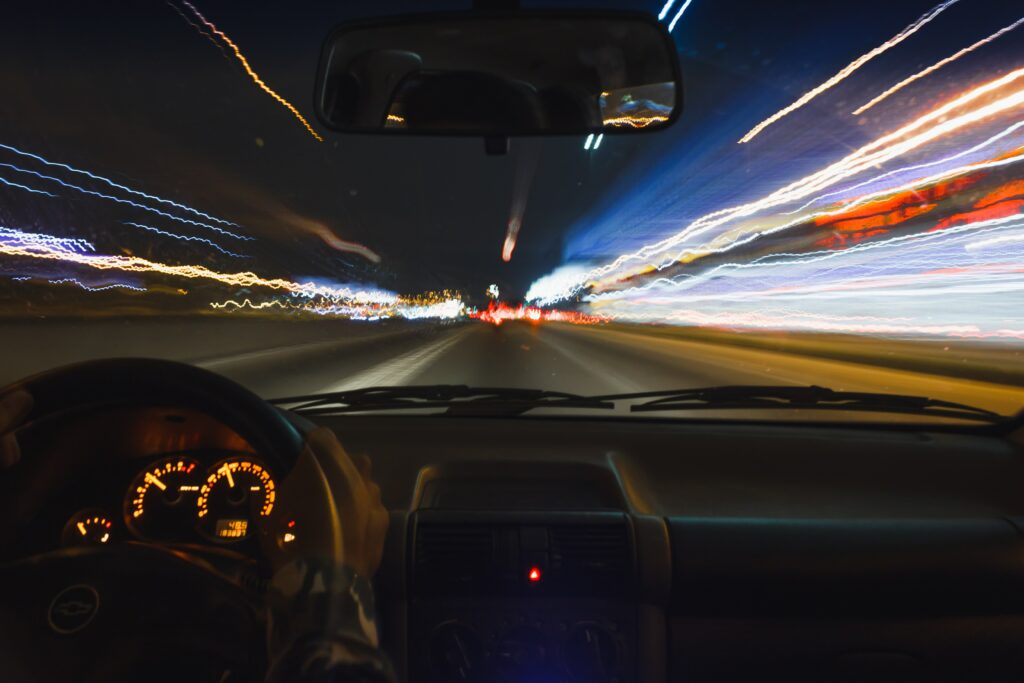According to Virginia Code § 18.2-266, police have the ability to charge you with Driving Under the Influence of Alcohol or Drugs no matter where police stopped your vehicle (i.e. whether you were on a public highway or on your friend’s driveway). However, it is important to highlight the fact that if the state government is unable to establish that your vehicle was being operated on a public highway, Fairfax County police cannot compel you to provide a breath or blood sample. This is due to the provisions set forth in Virginia Code § 18.2-268.2 (i.e. the Virginia Implied Consent laws).
According to § 18.2-268.2, every motorist consents to provide a breath or blood sample by the simple act of operating on a public highway in Fairfax County, and elsewhere in Virginia. According to Virginia Code § 46.2-100, a “highway” is defined as:
The entire width between the boundary lines of every way or place open to the use of the public for purposes of vehicular travel in the Commonwealth, including the streets and alleys, and, for law-enforcement purposes, (i) the entire width between the boundary lines of all private roads or private streets that have been specifically designated “highways” by an ordinance adopted by the governing body of the county, city, or town in which such private roads or streets are located and (ii) the entire width between the boundary lines of every way or place used for purposes of vehicular travel on any property owned, leased, or controlled by the United States government and located in the Commonwealth.
As a result, if you are charged with a DUI/DWI on a public highway, you are presumed to have consented to providing a breath or blood sample to the authorities. If you refuse to provide a breath or blood sample after being validly arrested on a charge of DUI/DWI, you could be cited for refusing to comply with testing, which carries a set of harsh penalties if you are convicted of the underlying DUI/DWI offense.
Stopped While on Private Property
The definition of a private parking lot and private roadway is governed by numerous decisions of the Virginia Court of Appeals and Virginia Supreme Court. Typically, in order to be considered a “private” parking lot or roadway, there needs to be evidence of restrictions for trespassing after hours and these parking lots and roads are for the exclusive use of patrons.
Do Not Help the Government Build Its Case Against You
If a Fairfax County police officer attempts to ask you a series of questions after charging you with a DUI/DWI, politely decline to answer until you have retained the services of a skilled and experienced Fairfax County DUI/DWI defense attorney. Why? Because if you admit to police that you operated your vehicle on a public road or highway in order to get to the private parking lot or private road, then you effectively exposed yourself to the aforementioned implied consent laws.
Protect Your Rights by Contacting Dua Law Firm’s Experienced DUI/DWI Defense Attorney in Fairfax County, Virginia
As you can see, the laws and regulations governing implied consent and when you are required to provide a blood or breath test to police can be quite complex. This is why it is so important to retain the services of a skilled and knowledgeable Fairfax County DUI/DWI defense attorney with the Dua Law Firm. We offer compassionate and effective legal representation, with a keen understanding of Virginia laws and regulations. Our comprehensive skills make us the right choice to handle your DUI/DWI case. We will work tirelessly to provide the most effective representation possible.
Get in touch with our skilled DUI/DWI defense attorneys in Fairfax today! Contact us at (703) 382-7300 to schedule a free, confidential consultation at your earliest convenience.

